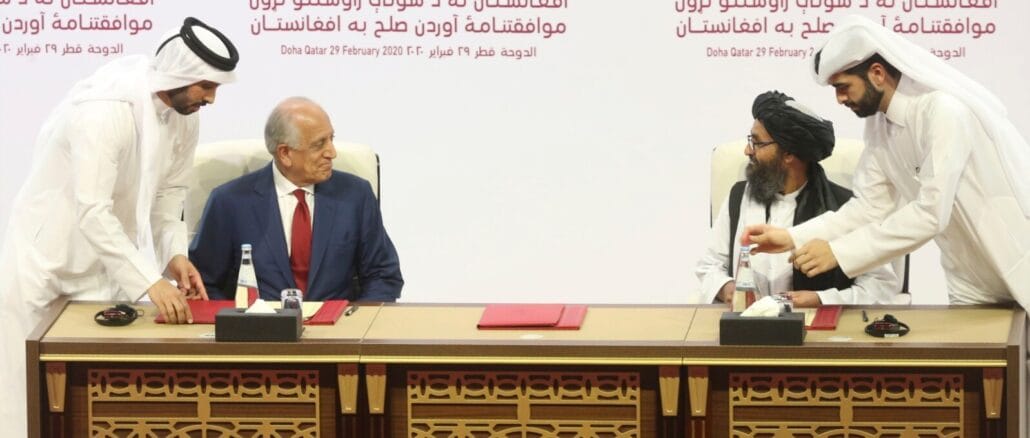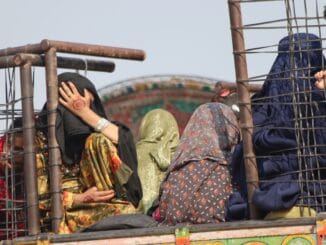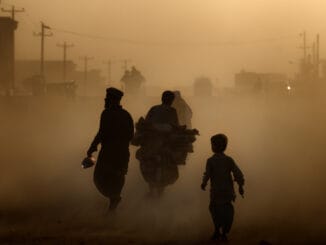
With Donald Trump’s election as President of the United States, Afghans have intensified their discussions about possible shifts in Washington’s policy toward Afghanistan. In the two and a half months since Trump’s victory, political figures, analysts, and various groups, including the Taliban and their opponents, have been voicing expectations and concerns.
Taliban’s Initial Response
When Trump’s victory was announced following the November 5 election, the Taliban’s Foreign Ministry in Kabul expressed hope that the new U.S. administration would take what they described as “realistic steps” to improve bilateral ties. The Taliban’s statement underscored a desire for a fresh start in relations between the two countries.
Opponents Seek a Tough Stance
Several opponents of the Taliban, however, hope that President Trump will adopt a more hardline approach against the group. Their optimism stems from remarks Trump made on January 7, when he stated: “It’s not even believable. Billions of dollars, not millions—billions,” Trump said, adding, “We pay billions of dollars to essentially the Taliban in Afghanistan. And that’s given by Biden.”
Some people close to Trump share this position. One example is Senator Marco Rubio, Trump’s nominee for Secretary of State, who introduced a proposal to the U.S. Senate in March last year. His plan called for suspending American aid to Afghanistan unless there were guarantees that the Taliban would not receive any portion of that funding.
Concern Over Taliban “Taxation”
Several political analysts argue that the Taliban indirectly benefit from foreign assistance. Ishaq Atmar, a professor at a German university, says: “The Taliban collect a 10 percent tax from this money. Then they convert it into Afghani currency and distribute it to certain institutions, from which they also profit.”
Atmar stresses that U.S. aid is nonetheless crucial for ordinary Afghans: “If these funds are cut off, the immediate impact will be on the Afghan people. Another concern is that if the Taliban do not get this money, they may look elsewhere for funding. They could turn to regional countries like Russia, China, India, or Iran for support.”
Revisiting the Doha Agreement
Trump’s victory also raised hopes among Taliban opponents that the Doha Agreement could be renegotiated. This sentiment gained traction following a statement from Zalmay Khalilzad, the former lead negotiator of the Doha talks, who says, “The agreement indicates that Kabul’s government should emerge through negotiations between the Taliban and other Afghans.”
Mike Waltz, nominated in the Trump administration as National Security Advisor, has been a vocal critic of the Doha Agreement. The deal, signed by Zalmay Khalilzad and Mullah Baradar on February 29, 2020, came after 18 months of negotiation.
Observers now question whether the Trump administration would push for the full implementation of the Doha pact. Political science expert Nasrullah Stanekzai believes: “If Trump or his administration puts too much pressure on the Taliban, the group might turn to regional players like Russia, China, or Iran. That scenario does not serve Afghanistan’s interests. Afghanistan’s current leaders should avoid alignment with any particular bloc. Ideally, the Taliban should maintain channels of communication with the existing U.S. government and uphold the commitments they have made internationally, such as respecting human rights and establishing a government that is answerable to its citizens.”
Criticism of the Taliban’s Domestic Policies
The international community’s most serious criticism of the Taliban’s government concerns human rights, particularly women’s rights. Since regaining power in August 2021, the Taliban have closed girls’ schools beyond the sixth grade, suspended female students’ attendance at universities, and recently banned women from participating in training at certain medical institutions.
Zarghona Malyar, a women’s rights activist and political analyst, says: “Afghanistan’s foreign recognition, banking sanctions, and the freezing of Afghan assets are directly related to the ban on girls’ education. I hope the new U.S. President will help resolve this problem.”
She added that President Trump would likely accelerate efforts to implement the Doha Agreement fully.
Divergent Views Between Trump and Biden
Officials in Joe Biden’s administration had criticized parts of the Doha Agreement. Vice President Kamala Harris, during a 2020 debate, accused Trump of negotiating a weak deal. “Donald Trump, when he was president, negotiated one of the weakest deals you can imagine. He calls himself a deal-maker. Even his national security adviser said it was a weak, terrible deal.”
Trump defended his approach: “We were getting out, and we would have been out faster than them, but we wouldn’t have lost the soldiers, we wouldn’t have left many Americans behind, and we wouldn’t have left $85 billion worth of brand new beautiful military equipment behind. They blew it.”
Trump’s Foreign Policy and Future Projections
In a January 15 appearance before the Senate, Marco Rubio, Trump’s choice for Secretary of State, addressed major global issues such as the war in Ukraine, the Gaza conflict, and China’s rise. He did not specifically mention Afghanistan but emphasized that maintaining global stability and securing the United States’ national interests remain his top priorities.
Zarghona Malyar believes the Middle East’s problems are approaching resolution under Trump’s leadership. She suggests: “Trump is a decisive figure. Issues in the Middle East are winding down, and it appears that Afghanistan may again become a primary concern on his agenda.”






Be the first to comment